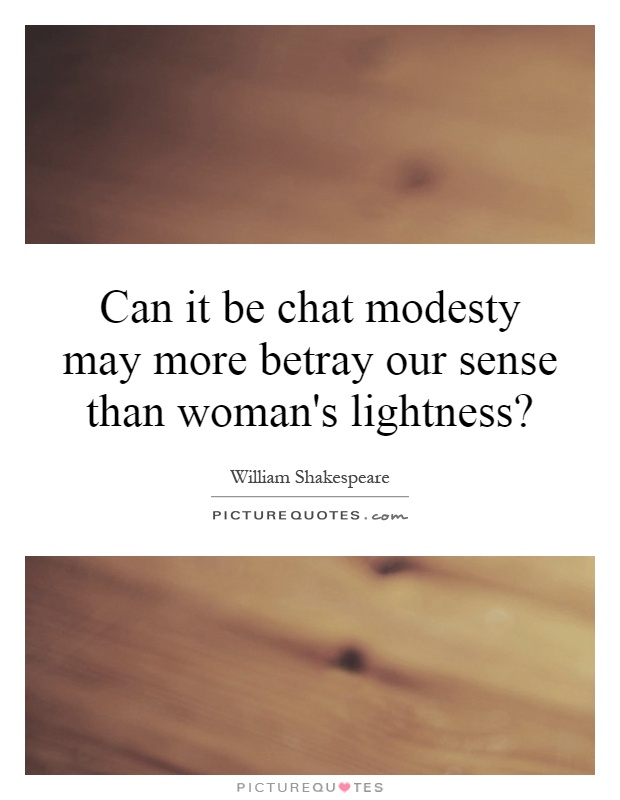Can it be chat modesty may more betray our sense than woman's lightness?

Can it be chat modesty may more betray our sense than woman's lightness?
In William Shakespeare's works, the theme of modesty versus lightness is a recurring motif that is often explored through the actions and words of his female characters. The quote "Can it be chat modesty may more betray our sense than woman's lightness?" is a thought-provoking question that delves into the complexities of societal expectations and gender roles in Shakespeare's time.In many of Shakespeare's plays, female characters are often judged based on their perceived modesty or lack thereof. Modesty, in this context, refers to a woman's adherence to societal norms and expectations of femininity, while lightness refers to a woman's perceived frivolity or lack of seriousness. The quote suggests that perhaps it is modesty, rather than lightness, that can ultimately betray a woman's true nature and sense of self.
One of the most famous examples of this theme can be found in Shakespeare's play "Hamlet." Ophelia, the young and innocent love interest of the titular character, is often seen as the epitome of modesty and virtue. However, as the play progresses, it becomes clear that Ophelia's adherence to societal expectations ultimately leads to her downfall. Her inability to express her true feelings and desires, due to the constraints of modesty, ultimately leads to her madness and tragic demise.
On the other hand, characters like Rosalind in "As You Like It" and Beatrice in "Much Ado About Nothing" exhibit a sense of lightness and wit that allows them to navigate the constraints of their society with more agency and autonomy. These characters challenge traditional gender roles and expectations, using their intelligence and humor to assert their independence and agency.












 Friendship Quotes
Friendship Quotes Love Quotes
Love Quotes Life Quotes
Life Quotes Funny Quotes
Funny Quotes Motivational Quotes
Motivational Quotes Inspirational Quotes
Inspirational Quotes